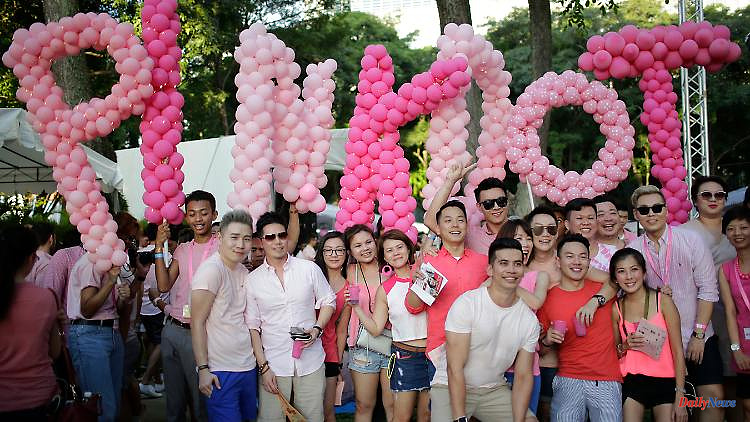A law in the island and city-state of Singapore punishes homosexual practices with up to two years in prison. Prime Minister Lee has announced that he intends to remove the age-old paragraph from the penal code - despite protests from an alliance of evangelical churches.
In Singapore, sexual relations between men should no longer be punishable. Prime Minister Lee Hsien Loong announced the imminent abolition of a corresponding criminal law that dates back to British colonial times. He believes the situation has changed since 2007, when the government at the time decided to keep the law, and that homosexuals are more accepted by society today than they were then, Lee said.
Paragraph 377A, which dates back to the colonial era, provides for a maximum sentence of two years imprisonment for homosexual practices. It hasn't been used for years, but activists have long criticized it for contradicting the increasingly modern and dynamic way of life in the Southeast Asian city-state.
However, Prime Minister Lee also made it clear that the previous definition of the institution of marriage will remain unaffected by the abolition of the criminal law paragraph. Singapore's law only recognizes marriage between a woman and a man, he said, announcing that the definition would be enshrined in the constitution. "Most Singaporeans don't want our mores to change drastically with the repeal of the penal code," Lee argued.
Before the prime minister's speech, an alliance of the evangelical churches in Singapore had strongly opposed the abolition of the criminal law. According to the opinion research institute Ipsos, however, only 44 percent of Singaporeans are now in favor of criminalizing homosexual relationships. Four years ago it was 55 percent.












